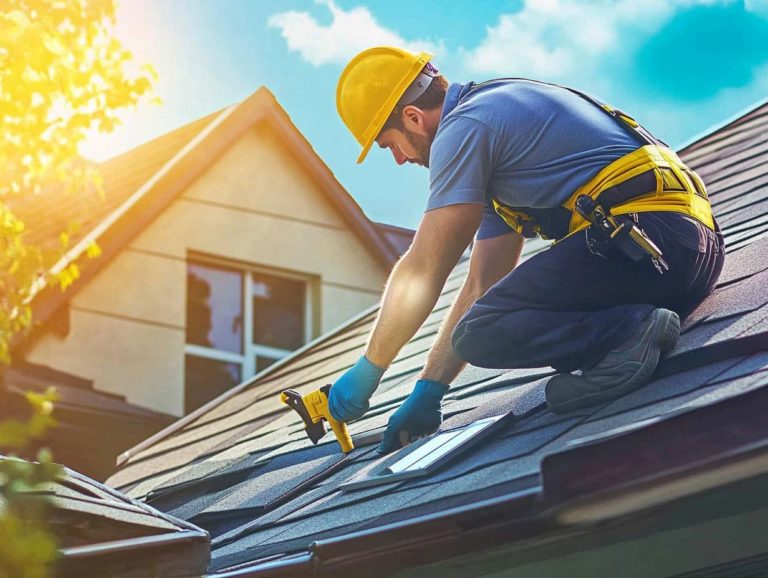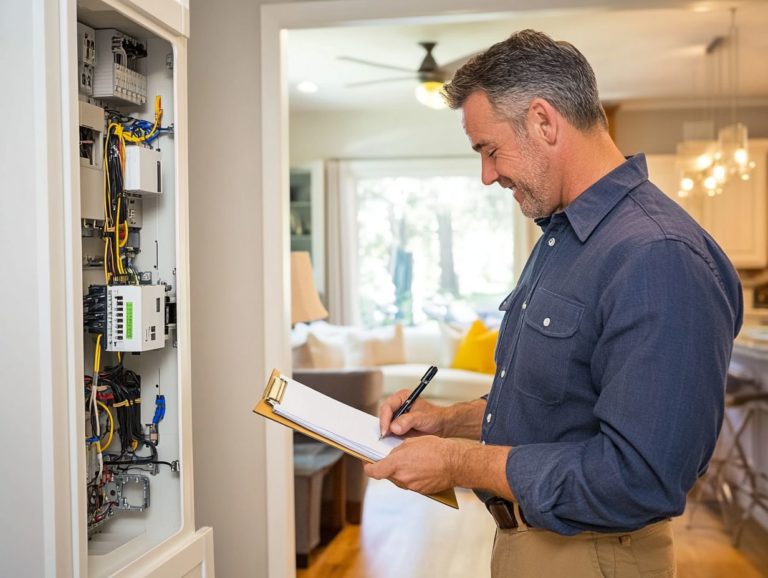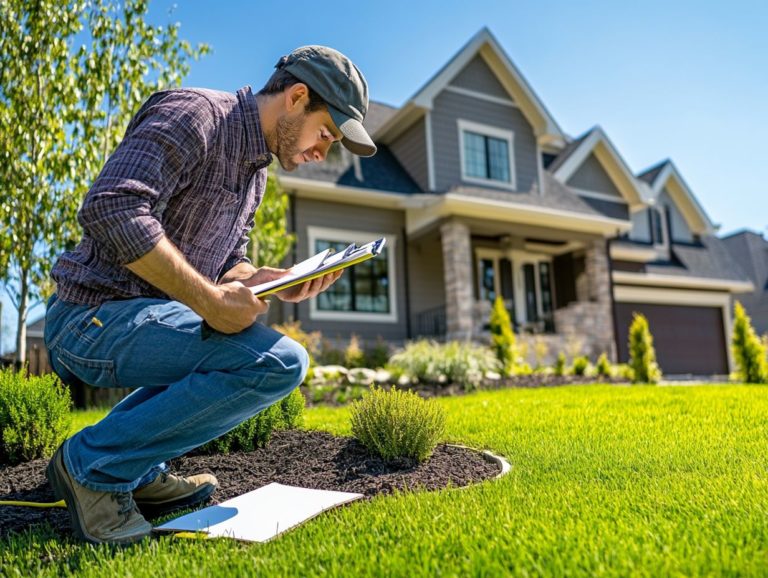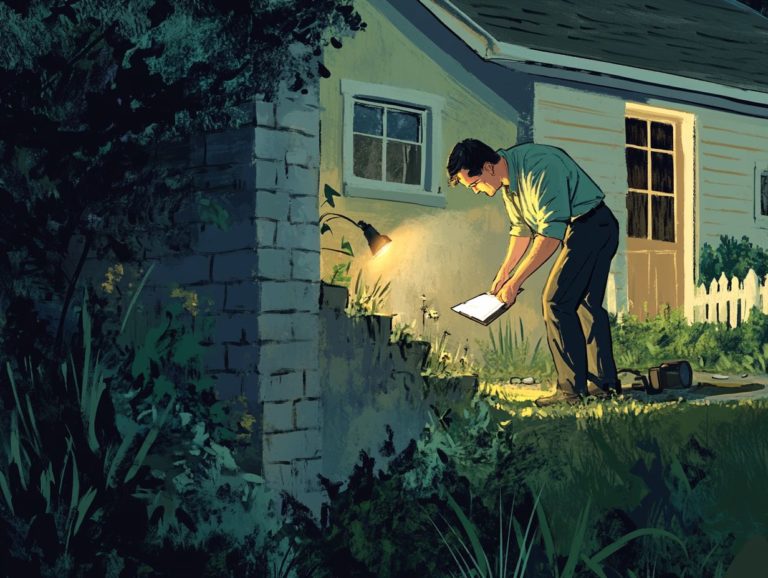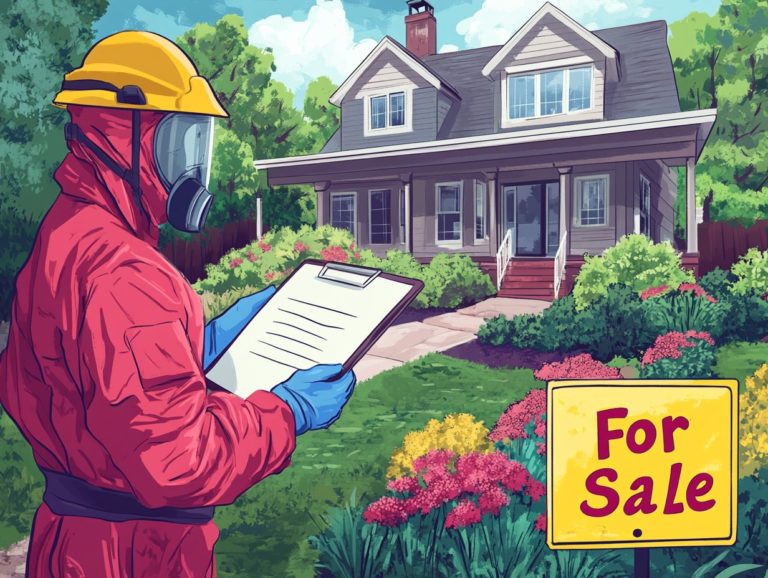Understanding Home Inspection Fees and Costs
Purchasing a home is one of the most significant investments you’ll ever make. A thorough home inspection is vital for protecting that investment.
This article covers the importance of home inspections, factors affecting inspection fees, and what to expect during the process.
We ll break down typical costs and offer tips to save money. This way, you can make informed decisions without overspending.
Join us as we explore the world of home inspections and empower you on your buying journey.
Contents
- Key Takeaways:
- The Importance of Home Inspections
- Factors that Affect Home Inspection Fees
- What is Included in a Home Inspection
- Typical Costs for Home Inspections
- Understanding Home Inspection Costs
- How to Save on Home Inspection Fees
- Frequently Asked Questions
- What are home inspection fees and costs?
- What factors affect the cost of a home inspection?
- Can I negotiate home inspection fees?
- Do home inspection fees and costs cover repairs?
- Are there any additional fees or costs associated with a home inspection?
- What are the benefits of paying for a professional home inspection?
Key Takeaways:
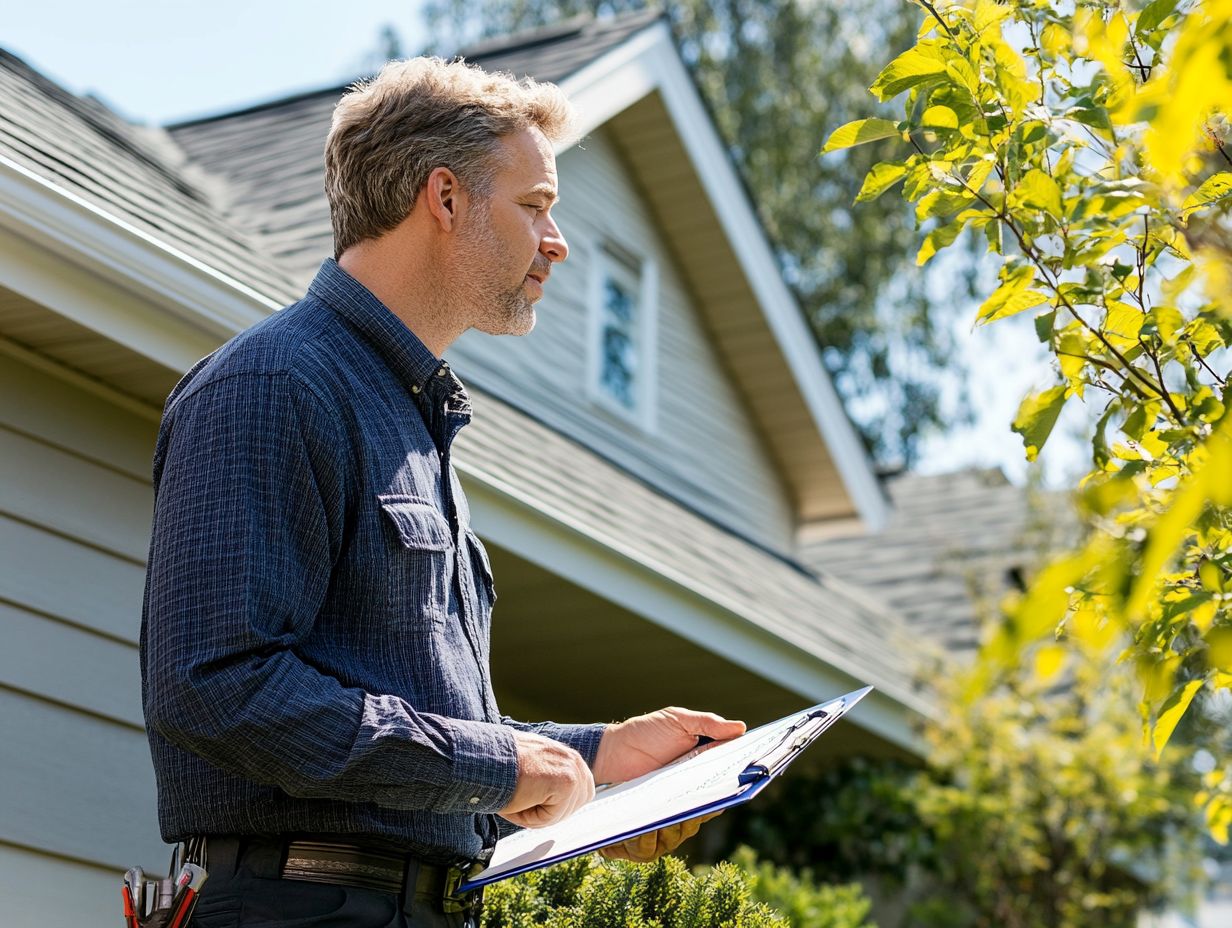
- Home inspections are crucial for homebuyers to spot potential issues and avoid costly repairs.
- The size, age, location, and type of inspection affect the cost.
- A thorough inspection covers major areas like the roof, electrical, plumbing, and structure.
- Costs can vary by location and may include optional services like radon or mold testing.
- To save money, consider negotiating with inspectors or comparing offers from multiple providers.
The Importance of Home Inspections
Home inspections are essential in the buying process. They provide a thorough check of the property you re considering.
These inspections uncover hidden costs linked to structural issues, plumbing, and electrical systems. This information empowers you to make informed decisions.
Why You Need a Home Inspection
A home inspection is crucial for homebuyers. It assesses critical areas like environmental concerns and potential pests.
This evaluation reveals immediate issues and long-term problems that could lead to expensive repairs. Getting a home inspection is a smart move that gives you peace of mind.
A detailed inspection report presents findings clearly, helping you make informed choices. Overlooking this step could expose you to unforeseen risks and financial strain.
Understanding these factors is crucial for every potential buyer looking to secure a safe investment.
Factors that Affect Home Inspection Fees
Home inspection fees vary based on several factors. These include the inspector’s pricing strategy, the property’s size, age, and location.
Understanding these elements helps you choose the right pricing model whether it’s a flat rate or competitive pricing affecting the total inspection cost.
Size and Age of the Home
The size and age of your home greatly impact inspection costs. Larger properties require more time and resources for a thorough check, while older homes often present unique challenges.
For sprawling estates, expect inspections to take several hours. Inspectors need to evaluate various systems across the property, which increases labor costs.
Older homes add complexity. Inspectors may find outdated wiring or plumbing issues that are less common in newer homes. This can lead to a more thorough and costlier inspection process.
Thorough examinations are essential to identify potential pitfalls that could impact your investment down the line.
Location and Accessibility
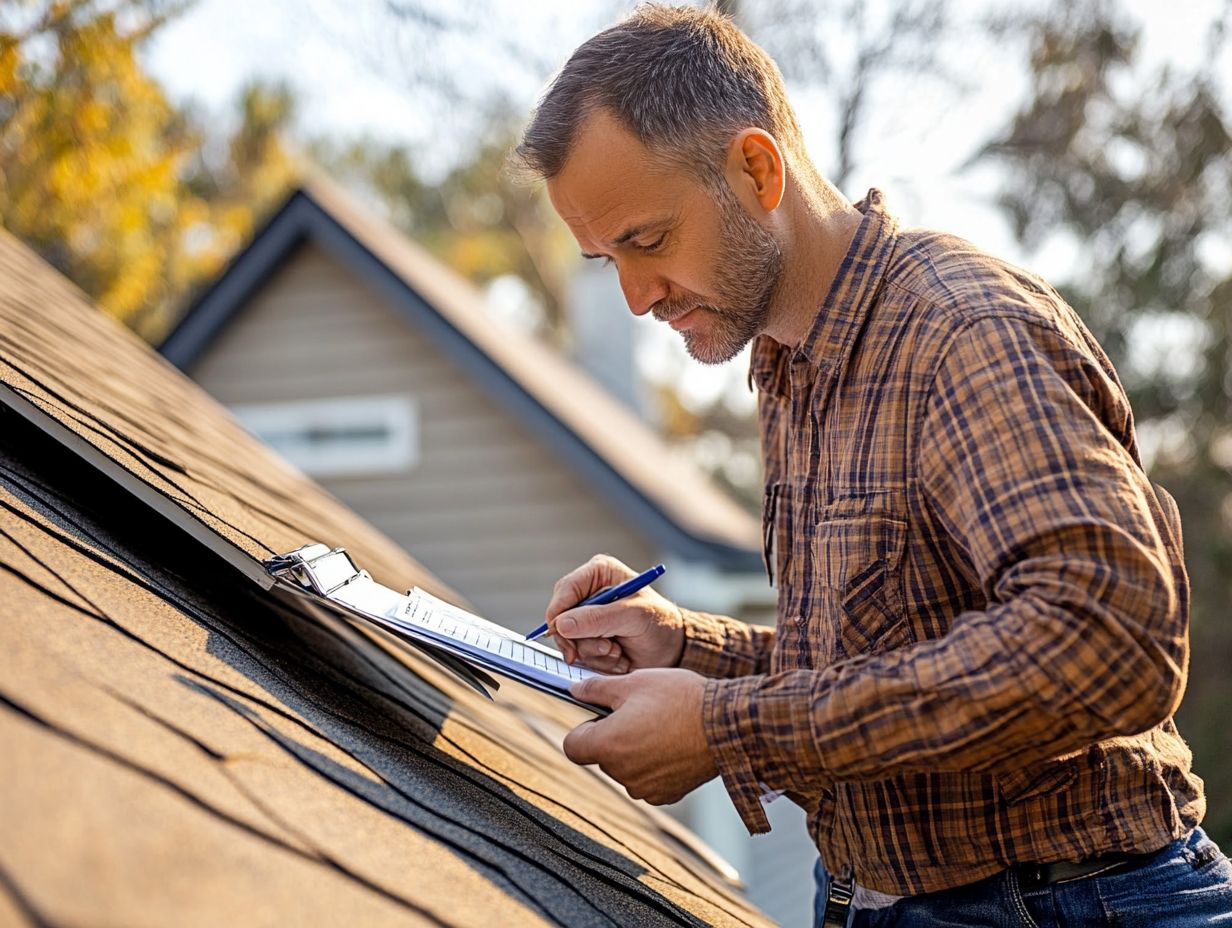
The location and accessibility of a property can have a significant impact on your home inspection costs. If you re in an urban area like Chicago, you may face higher fees due to increased demand and competition among home inspectors compared to rural locales.
Location plays an important role in shaping pricing structures, as inspectors typically account for their travel time and expenses. In densely populated cities, traffic congestion can lead to delays, which may result in additional charges reflecting the complexities of maneuvering through the urban landscape.
If your property is in a hard-to-reach area, such as a remote neighborhood, specialized equipment or expertise might be required. This can further drive up inspection costs.
On the flip side, if you reside in a suburban setting, you may find more competitive pricing options. A less saturated market can give you the advantage of choosing from various services tailored to your needs.
Type of Inspection
The type of inspection you choose significantly affects the overall cost. Basic home inspections come with a different price tag compared to specialized inspections like radon testing, mold assessments, or evaluations of the heating, ventilation, and air conditioning (HVAC) and plumbing systems.
For example, a standard home inspection typically runs between $300 and $500, but if you opt for a radon test, you might be looking at an extra $100 to $150 on top of that. If you notice signs of moisture or previous water damage in the property, a mold assessment could set you back anywhere from $200 to $1,000, depending on how thorough the inspection needs to be.
Specialized inspections are essential for ensuring that unique features like swimming pools or solar panel systems are functioning correctly and meet safety standards. Adding these services to your inspection checklist not only helps you gain a clearer understanding of potential issues but also empowers you to negotiate the overall sale price more effectively.
What is Included in a Home Inspection
A comprehensive home inspection covers a multitude of areas and systems within the property, ensuring you receive a detailed report that outlines the condition of essential components like the foundation, plumbing, electrical systems, and HVAC. This thorough approach improves your experience as a homebuyer.
Areas and Systems Covered
During a home inspection, you ll find that several critical areas are evaluated, including foundational systems, plumbing, electrical systems, and HVAC. This detailed assessment gives you crucial insights into your property, helping you make informed decisions quickly.
Each of these components plays a vital role in ensuring your home s functionality and safety. Inspectors meticulously search for signs of water damage in the plumbing, which could lead to mold issues or structural deterioration. The electrical systems are scrutinized for code compliance and safety hazards, as faulty wiring can present a significant fire risk. Similarly, HVAC systems are assessed not just for efficiency but also for potential costly repairs or replacements.
Identifying these potential issues early helps you make informed decisions, ultimately saving yourself from unforeseen financial burdens down the line.
Typical Costs for Home Inspections
Typical costs for home inspections can vary significantly, influenced by things like the property’s age, size, and location.
This makes market research essential for you to grasp average prices and uncover any potential hidden costs associated with inspection services.
Understanding Home Inspection Costs

Average prices for home inspections typically range from $300 to $500, based on factors like the size of the property and the specific inspection services you choose.
Larger properties generally face higher fees due to the extra time and effort required. Geographical location also plays a crucial role in determining costs. For example, in urban areas, prices may be higher due to increased demand and living expenses.
A home inspection in a city like San Francisco could escalate to around $600, while you might find services in rural areas of the Midwest for as low as $250.
As a homebuyer, don’t forget to think about these extra services, such as radon testing, which is a test for a harmful gas that can come from the ground, or mold assessments. These can add to the overall expense and vary significantly by region.
Many companies offer package deals or competitive pricing options to attract clients, which can further impact the total cost of the inspection.
How to Save on Home Inspection Fees
Homebuyers seeking to minimize home inspection fees can employ a variety of effective strategies. By negotiating prices and exploring affordable options, they can enhance their overall experience and achieve significant savings.
These approaches not only lead to financial benefits but also contribute to a smoother, more satisfying homebuying journey.
Tips for Negotiating and Finding Affordable Options
When you’re looking to negotiate home inspection fees or find more affordable options, it s wise to reach out to multiple service providers. This way, you can compare competitive pricing and uncover the best deals available in your area.
Taking this approach gives you a clearer picture of market rates and prepares you for informed discussions with inspectors, potentially leading to discounts or tailored service packages.
Effective engagement means communicating your specific needs and budget constraints right from the start. Keep in mind that pricing can vary throughout the year; for example, inspectors might offer lower rates during slower months or when you opt for bundled services.
It s also worth exploring package deals that include additional services like radon testing or termite inspections; these can provide significant cost savings, making the entire experience more beneficial for you.
Frequently Asked Questions
Here are some common questions homebuyers ask about inspection fees.
What are home inspection fees and costs?
Home inspection fees and costs refer to the charges associated with hiring a professional home inspector to evaluate the condition of a property. These fees typically cover the inspector’s time and expertise, as well as any additional services or tools used during the inspection. For a detailed overview, check out understanding the cost breakdown of home inspections.
What factors affect the cost of a home inspection?
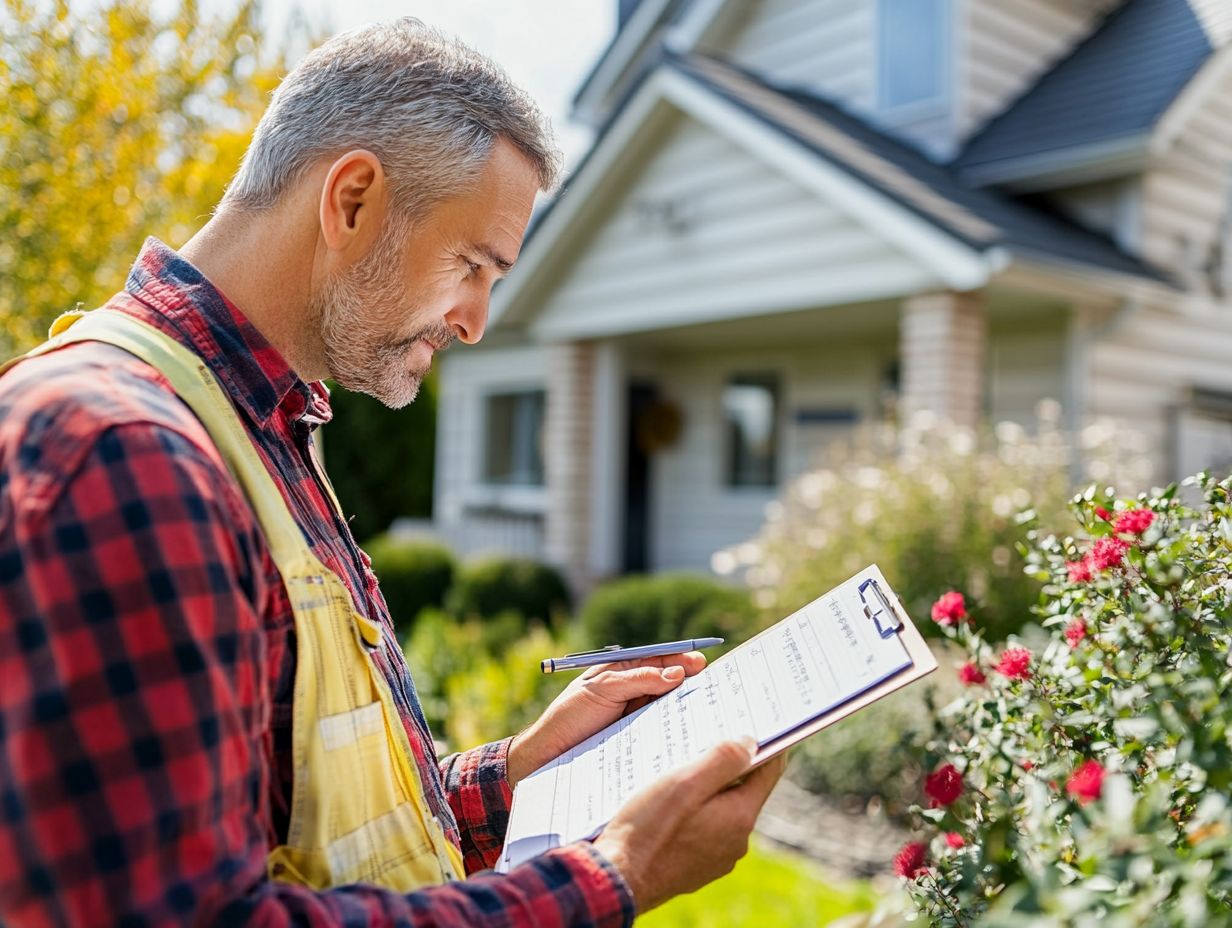
The cost of a home inspection can vary depending on several factors, including the size and age of the home, the location, and the level of detail required. Additional factors, such as the complexity of the property’s systems and any specialized inspections like termite or radon testing, can also impact the overall cost.
Can I negotiate home inspection fees?
In most cases, home inspection fees and costs are not negotiable. However, some inspectors may offer discounts for bundled services or repeat clients. It is best to discuss any potential discounts or deals with the inspector directly.
Do home inspection fees and costs cover repairs?
No, home inspection fees and costs do not cover repairs. The purpose of a home inspection is to provide a thorough evaluation of the property’s condition and inform the buyer of any potential issues or concerns. Any necessary repairs or renovations will be the buyer’s responsibility.
Are there any additional fees or costs associated with a home inspection?
In addition to the base fee for the home inspection, there may be additional charges for specialized inspections like termite or radon testing, as well as travel fees for properties outside of the inspector’s usual service area. It is important to discuss all potential fees and costs with the inspector before booking the inspection.
What are the benefits of paying for a professional home inspection?
A professional home inspection provides important details about the home’s condition. This helps buyers make smart choices and can save them from unexpected repair costs later.
You can also use the inspection report to negotiate better terms during the home buying process.

